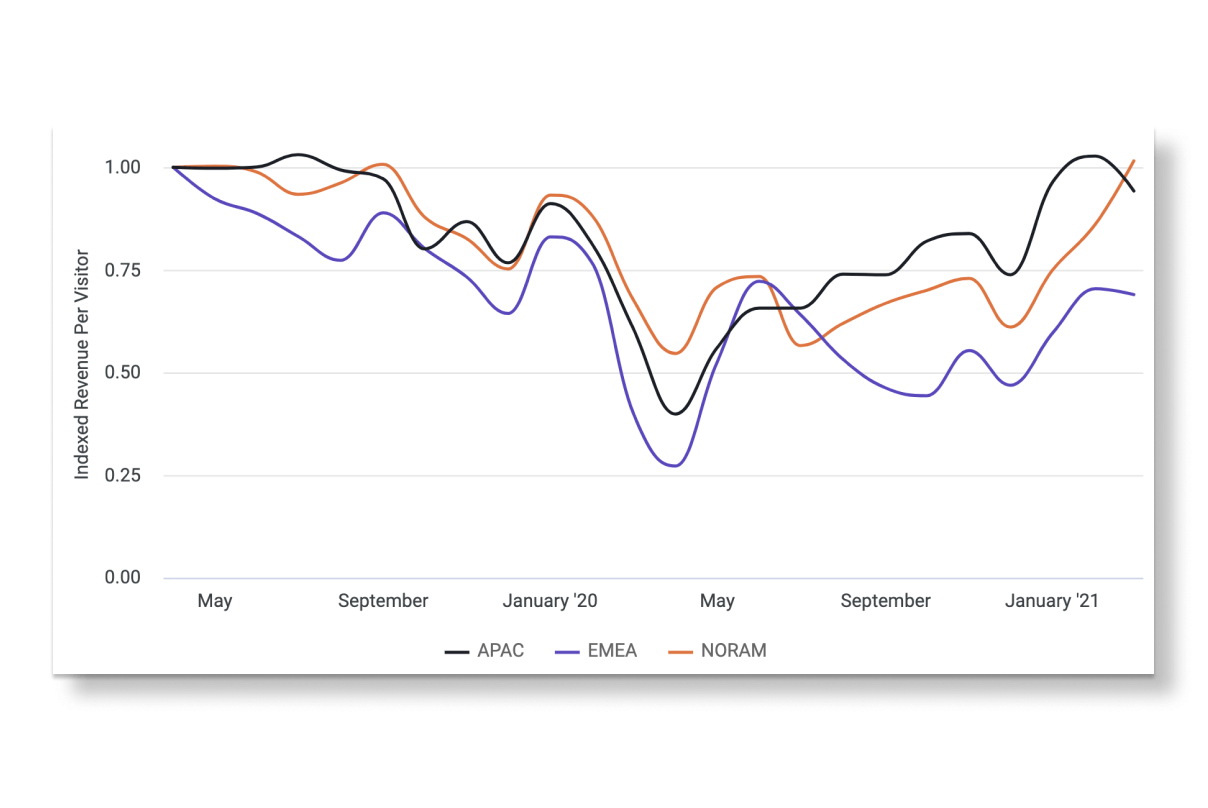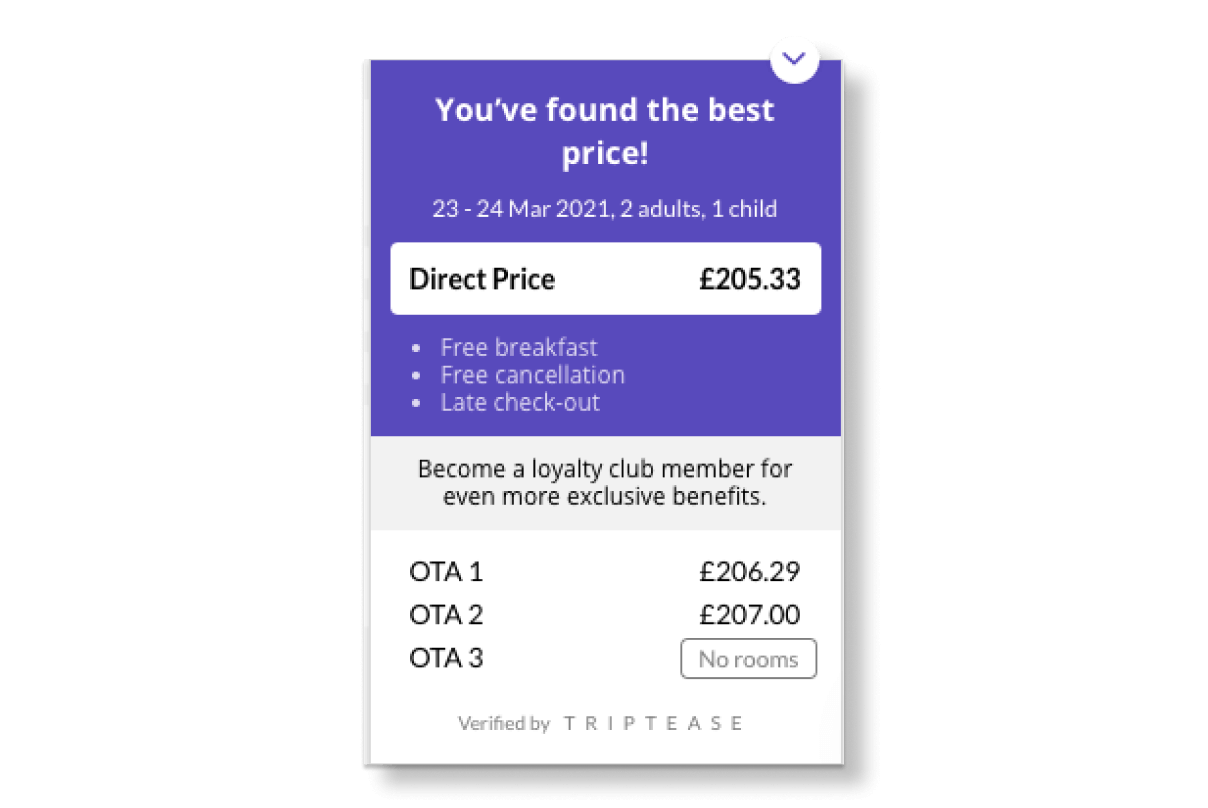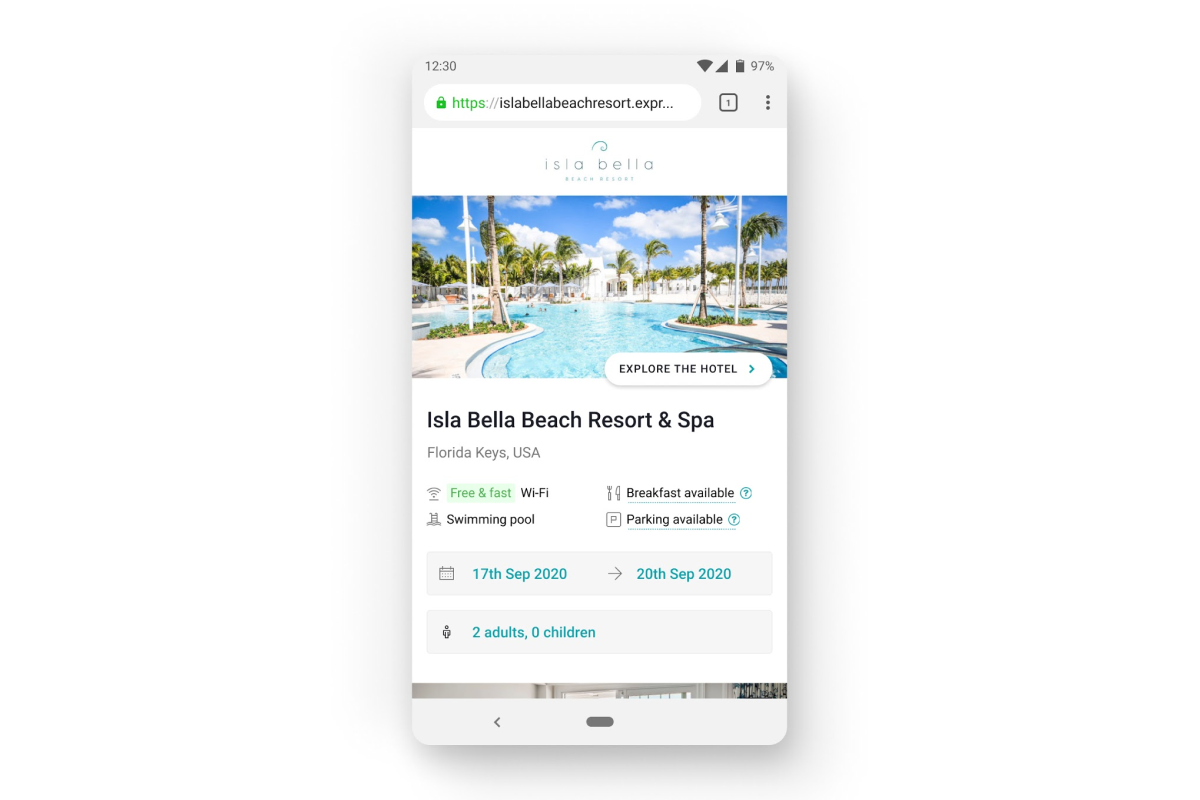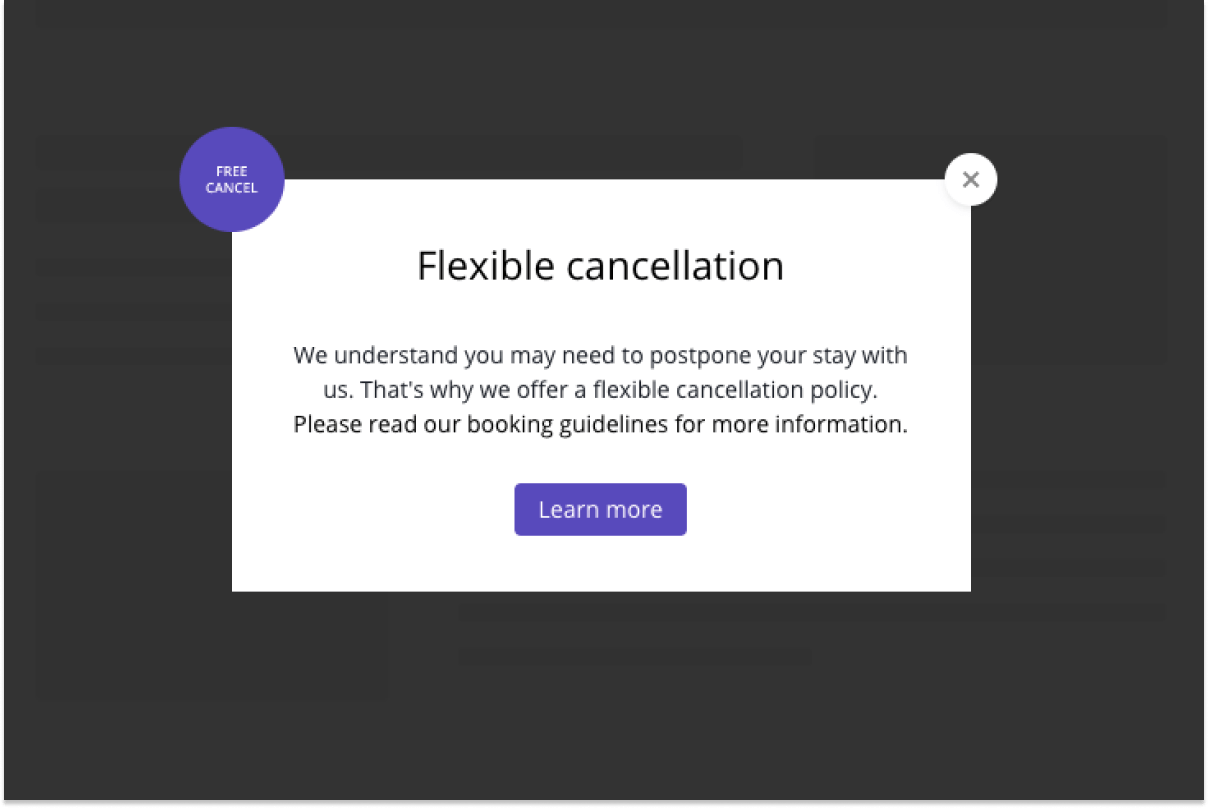
From the very beginning of the Covid-19 pandemic, we’ve used our unique access to our global hotel database to help hoteliers understand rapid changes customer behaviour and demand in their region.
NB: This is an article from Triptease
This week, we’re sharing some really good news. We’ve spoken previously about the imminent bounce back in travel demand – this latest analysis suggests that the bounce back has arrived.
Subscribe to our weekly newsletter and stay up to date

What is Revenue Per Visitor?
Revenue Per Visitor (RPV) is one of the most important metrics in e-commerce. For hotels it is a measure of how much revenue each hotel website visitor generates on average. Right now in North America RPV is the highest it’s been in over two years. In the Asia Pacific region RPV is also right back up at Q1 2019 levels too.
How is RPV calculated?
RPV can be calculated in two ways:
- Revenue divided by users
- Average booking value (AVB) multiplied by Conversion Rate (CvR)
RPV is a more comprehensive metric to look at than conversion rate, because it takes into account more than just the fact that a conversion happened – it includes the value of that conversion too. This is why it’s often referred to as the gold standard in evaluating website performance. It is used extensively by e-commerce giants when benchmarking and testing new features.
What does this mean for your traffic acquisition strategy?
A higher RPV means each website visitor is worth more to you. This means that, if you’re using our traffic acquisition products, you’ll be getting a better return on ad spend (ROAS).
Actions to take now: If you’re not on meta, get your hotels on there as soon as possible. This has never been easier thanks to Google’s new free booking links – as long as you’re able to connect your price feed, you can start capturing more traffic for free.
If you’re already established on metasearch, ensure your strategy is set up for maximizing volume. You don’t want to be constrained by the size of your media budget if there are still clicks left on the table at a reasonable return.
You can also boost your click-through rate from Google by showcasing your member rate (or a similar discount) in the auction. You can set this up with a strike-through format so you don’t have to actually expose your lower rate publicly. Hotels utilizing strike-through rates are likely to drive a higher volume of clicks, giving you maximum opportunity to make the most of high-RPV traffic.
Finally, make sure your Google My Business profile is up-to-date. GMB is prime real-estate that puts crucial information (and a free website link!) right in front of your most engaged searchers. Make sure you’re making the most of it.
What does this mean for your website conversion strategy?
This is the time to get your website set up to capitalize on visitors who are more ready to book and to spend than any time in the last 24 months. The wave of booking recovery is happening and you do not want to get left behind your competition.
Actions to take now: Don’t let anything get in the way of a customer’s path towards booking. If they’ve seen a price on metasearch, make sure they can find that same rate easily on your website. A Price Check Message can be used to reiterate your price to guests when they make a search on your website, as well as highlighting all the additional reasons why it’s best to book your hotel direct.

Triptease’s Convert tools are proven to boost conversion rate and designed to increase average booking value. Use targeted personalization to show exactly the right content to every guest. For example, if you know you have a high volume of drive-in traffic from neighboring states, highlight specific offers (like free parking or the option to upgrade a two-night stay to a long weekend) that you know those travelers will want to see.

If you’re taking part in metasearch but not currently optimizing your website to convert those bookers when they arrive there, you’re leaving money on the table. Visitors from metasearch who are shown both Price Check and another message from our Platform are 118% more likely to book than visitors from metasearch who don’t see any messages at all.
Finally, don’t limit your focus to your desktop experience. Much of the booking recovery so far has been happening on mobile, and improving the mobile experience should be a priority for hotels in 2021. With booking speeds at half the time of a standard mobile experience, improved Google performance scores and a simple, user-friendly design, the Express Mobile Experience is the simplest way to make sure that your mobile experience is ready for customers who want to book.

Continue to highlight cancellation policies – and keep an eye on cancellation rates
A key learning for hotels over the past year is that your cancellation policy needs to be flexible, and clearly visible on your website. Customers are now used to – and expect that – a hotel’s cancellation policy will allow them to change or cancel their plans whenever necessary.
 So while hoteliers should be doing everything they can right now to ride this first wave of booking recovery, you should of course continue to monitor the situation closely in your region for changes in travel restrictions and traveller confidence.
So while hoteliers should be doing everything they can right now to ride this first wave of booking recovery, you should of course continue to monitor the situation closely in your region for changes in travel restrictions and traveller confidence.
The time to act is now
These next few months will be critical to ensure you have a great summer of revenue recovery – but you need to put your strategy into action now.




